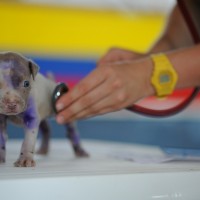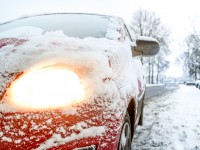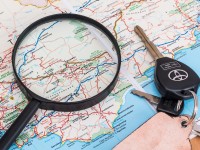The mellow season is almost here, the last warm days before the rainy fall is the best time to get in a car and hit the road. To ensure that your trip is safe and get your car trip ready, there are a few things that you need to check before getting on the road. Without the checks, you risk getting stuck in the middle of nowhere and no one knows what may happen there (remember the movie Nocturnal Animals?). So read the must-do checks to get your car trip ready.
Fluids
There are six essential fluids that get your car running and guarantee comfortable travel. While it’s better to check and replace them all, if needed, professional car mechanics say that verification of the first two will be enough for the road.
Oil: Oil is critical for the proper work of an engine because it lubricates moving components for the smooth operation of the whole vehicle. Traditionally, oil change is advised every 3,000-5,000 miles. However, to get your car trip ready, use the dipstick to check the level of oil and its condition. Black and gritty oil must be replaced, while the low level can be simply refilled.
Windshield fluid: This fluid guarantees that your windshield will be clean and that your visibility won’t be obstructed by insects and dirt. There is nothing tough in adding the required fluid to your car because the reservoir is easily accessible at any vehicle. It’s also highly advised to have some additional windshield fluid on the way because you never know when you may run out of it.

The following fluids cannot be verified on your own and require professional assistance. If you don’t know any auto repair service nearby, then click on the button below to find the nearest car workshop.
Radiator fluid: Radiator fluid cools the engine when you’re driving. It’s also known as a coolant or antifreeze. Low level of the coolant usually results in engine overheating. Generally, it is advised to check the radiator fluid at 50,000-mile intervals.
Brake fluid: Brake fluid is essential for the proper work of the brakes which directly impact the driving safety. This is also a kind of fluid that must always be at a proper level and of the right quality. Experts advise checking brake fluid every 36,000 miles to keep your car trip ready at all times.
Power steering and transmission fluids: The former should be checked every 24,000 miles, while the latter requires replacement every 60,000 miles. Both are essential for the proper car functioning and are usually verified during the annual vehicle checkups.
Tires
Tires are paramount to safety and fuel efficiency, so don’t forget to check their condition.
Air pressure: Every time you go on a long ride, ensure that air pressure in your tires is at the right level (30-35 PSI). Underinflated tires will waste your gas and may lead to unexpected air accident in severe cases. Moreover, uneven air pressure causes heavier uneven wear of the tires and more frequent replacement.
Rotation: Every 5,000-8,000 miles tires rotation should be checked. This is not a must-do before the trip, but rather general advice for car maintenance.
Replacement: This is also a general maintenance tip. Tires should be replaced every 25,000-50,000 miles. If you know that your mileage will exceed this range, then consider changing your tires to get the car trip ready.

General advice
Besides the fluids and the tires, there is a vast number of elements that should be checked and properly maintained before a long road trip. Make a note that we don’t advise you replacing these elements or fixing them right away, this section is a kind of reminder regarding the general car maintenance needs.
Air filters: Filters ensure that air inside of your car will be fresh and easy to breathe. Experts advise replacing air filters every 12,000 miles, but you can take care of it sooner if you feel that you’re not satisfied with your vehicle air quality.
Brake pads: Brake pads are the guarantee that your car will stop when you need it to. Any squeaking or screeching noise is a sign that pads should be replaced. As a rule, it happens after 25,000-70,000 miles depending on your driving style. Brake pads should be always checked and replaced before the long trip. Keep in mind that pad replacement takes about a week to order the parts and install them. So take care of them ahead of time to get the car trip ready.
Light bulbs: Some states have road fines for not working signal lights. To avoid fines and guarantee proper road safety to all participants on the road, ensure that all your lights are working.

What to pack?
Besides getting your car ready, it’s also essential to pack a number of additional items for a safe trip, such as:
- Emergency car kit (tire gauge, foam tire sealant, jumper cables, tow rope, fire extinguisher)
- First-aid kit
- Additional windshield fluid and oil
- Flashlight with extra batteries
- Rain poncho
- Sun shades for passengers if you’re planning a long ride under the ardent sun
- Documents (driving license, warranty, car insurance, emergency car service contacts)
- GPS and maps (always take a paper map on a road trip in case GPS fails)
- Chargers (for a mobile phone and GPS)





